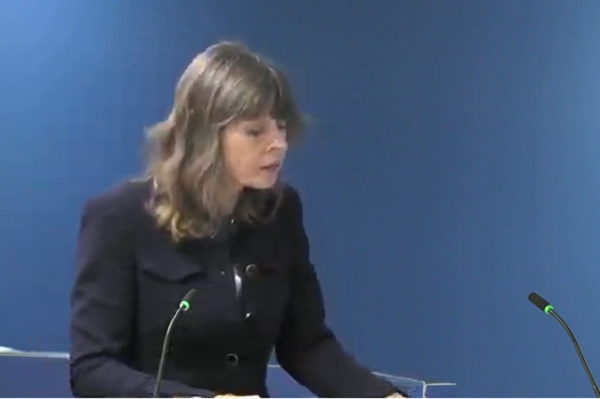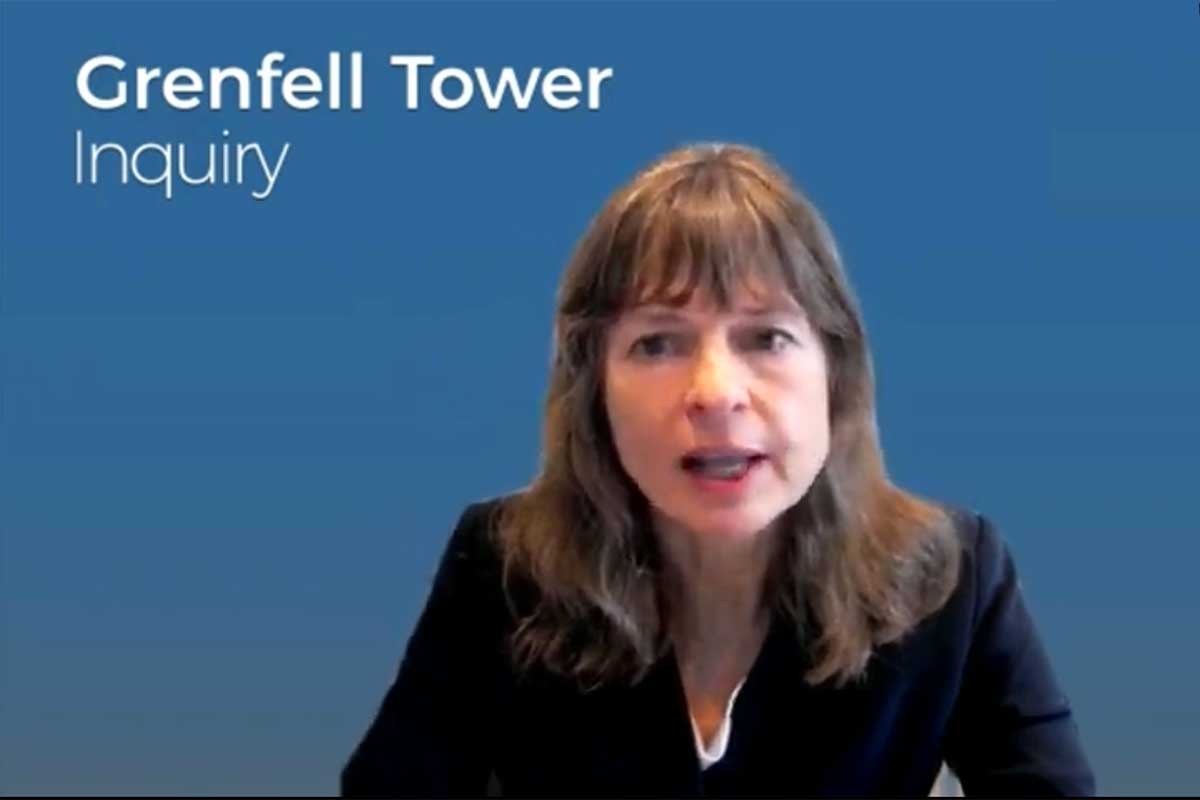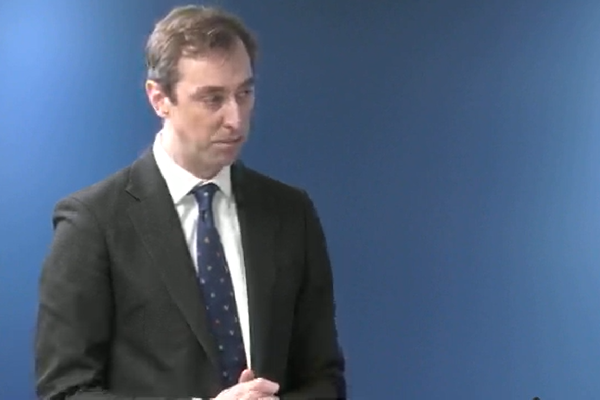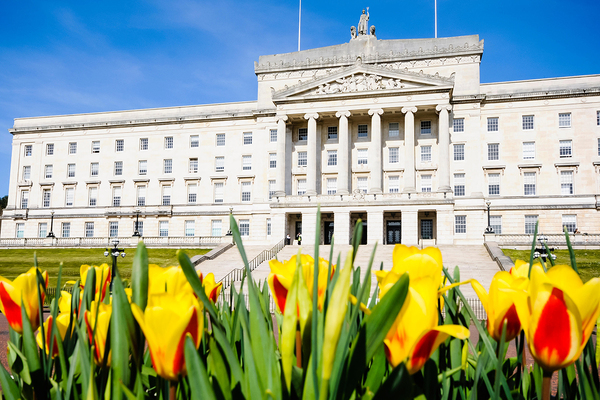Government ‘deeply sorry’ for failures in oversight of regulatory system before Grenfell
The government has said it is “deeply sorry” for “past failures in relation to the oversight of the system that regulated safety in… high-rise buildings”, as it delivered its opening statement to the Grenfell Tower Inquiry today.
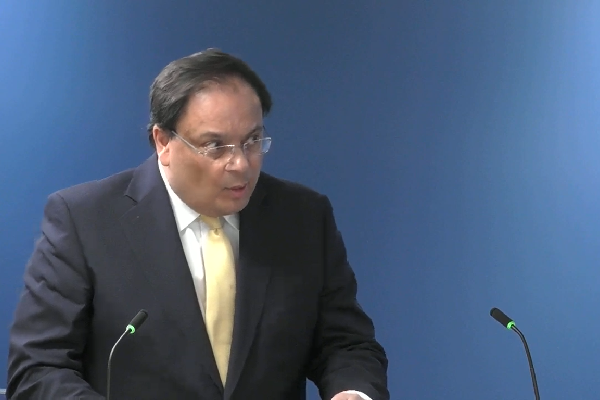
Appearing on behalf of the Department for Levelling Up, Housing and Communities (previously known as the Ministry of Housing, Communities and Local Government), Jason Beer QC said that the government’s trust in industry had been “misplaced and abused”.
He said that the department had assumed compliance with the regulations was being monitored “at a local level” and it did not “see any need for it to superintend the inspectors”.
However, he stopped short of accepting flaws with government guidance or regulations, insisting that if they were properly followed “a large-scale cladding fire could not have happened”.
It came a day after the government was accused of a “prolonged period of concealment” of the risks of dangerous cladding and failing to amend low fire performance standards due to “industry interference”.
Stephanie Barwise QC, appearing for one group of bereaved and survivors, said fires in the 1990s and tests in the early 2000s illustrated the risk from dangerous cladding and should have resulted in action to prevent the disaster.
She said successive governments’ “unbridled passion for deregulation” coupled with a “radical housing agenda” since 2010 rendered it incapable of properly regulating the housebuilding industry and reliant on industry to write its own rules.
Speaking today, Mr Beer said: “The department is deeply sorry for its past failures in relation to the oversight of the system that regulated safety in the construction and refurbishment of high-rise buildings.
“It also deeply regrets past failures in relation to the superintendence of the building control bodies which themselves had a key role in ensuring the safe construction and refurbishment of such buildings. It apologises to the bereaved residents and survivors of the fire for such failures.”
He added: “The public, residents and indeed government trusted those constructing and improving high-rise buildings and supplying the products used in them were following the law and doing the right thing.
“This trust was both misplaced and abused. The department deeply regrets that it took the Grenfell fire to lay bare this misplaced and abused trust.”
The inquiry has previously heard detailed evidence about how insulation manufacturers Kingspan and Celotex and cladding supplier Arconic sold its combustible products for use on high-rise buildings, despite tests demonstrating the fire risks.
Mr Beer said that the “mistaken assumption” made by the department was that “compliance was being monitored at the local level”.
“The department accepts that it failed to recognise the risk that those responsible for complying with and enforcing the rules were not diligently fulfilling their respective responsibilities,” he added.
He claimed that “had the building regulations, British standards and statutory guidance been followed, a large-scale cladding fire could not have happened”.
The government has previously accepted failures in building control enforcement by local authorities but has always insisted its guidance was not deficient.
Yesterday Ms Barwise singled out the ‘Class 0’ standard for cladding in official guidance Approved Document B as “inadequate” and said it “should have been abolished”.
Previous Arconic witnesses have said the UK was viewed as a market for its most combustible cladding, due to this Class 0 standard, which was weaker than fire standards in place elsewhere in the EU. A senior manager wrote in 2011 that “even if we know that [the cladding] has a bad behaviour exposed to fire, we can still work with national regulations who are not as restrictive”.
Earlier the inquiry had heard an opening statement from the National House Building Council (NHBC), the UK’s largest building control inspector and warranty provider.
The NHBC was not directly involved in the refurbishment of Grenfell Tower, but is being investigated for industry guidance it helped prepare and its interactions with insulation manufacturer Kingspan.
One of the issues was its assistance in writing ‘technical guidance notes’ in 2014 and 2015 that legitimised the use of ‘desktop studies’ – which saw cladding systems approved by fire engineers without being tested.
Matthew Butt QC, speaking on behalf of the NHBC, said this was a “valid approach to compliance with the building regulations” but added that the NHBC could see “with hindsight how [desktop studies] were capable of being abused by unscrupulous manufacturers”.
He said that draft and final versions of the guidance note were shared with government officials, who “expressed no concerns”.
The inquiry has previously seen that NHBC raised concerns with Kingspan about the use of its insulation on high-rise buildings in 2014, before being threatened by the company’s lawyers in early 2015 if it made its concerns public.
Mr Butt said the NHBC had written to its builder clients in March 2015 about K15 despite the legal threat. He added: “It is now clear that Kingspan abused its position and standing in the industry to suggest that it was genuinely seeking to demonstrate compliance when this was far from the case.
“NHBC acknowledges that it should have been more assertive with Kingspan in dealing with this important and complex issue.”
The inquiry also heard an opening statement from the Building Research Establishment (BRE), which was yesterday accused of being “a wholly flawed organisation which has effectively sponsored Kingspan’s activities for over a decade without raising the alarm, and has presided over a series of inadequate and dangerously misleading fire investigations”.
Samantha Leek QC, appearing for the former national research centre that was privatised in 1997, said: “Health and safety is at the core of what the BRE does. To an extent that is its raison d’être.”
“I would like to say on behalf of BRE that its intention as an organisation remains to be reflective not defensive,” she added. “The evidence disclosed for [this part] of the inquiry has given BRE further cause to reflect as to its own practices and on what could potentially have been done differently.
“BRE’s witnesses are still in the process of considering carefully that evidence and will attempt to assist you with the issues that have been raised and the criticisms of BRE as an organisation.”
The inquiry continues, with witnesses from Local Authority Building Control due to appear tomorrow.
Sign up for our weekly Grenfell Inquiry newsletter
Each week we send out a newsletter rounding up the key news from the Grenfell Inquiry, along with the headlines from the week
Already have an account? Click here to manage your newsletters
